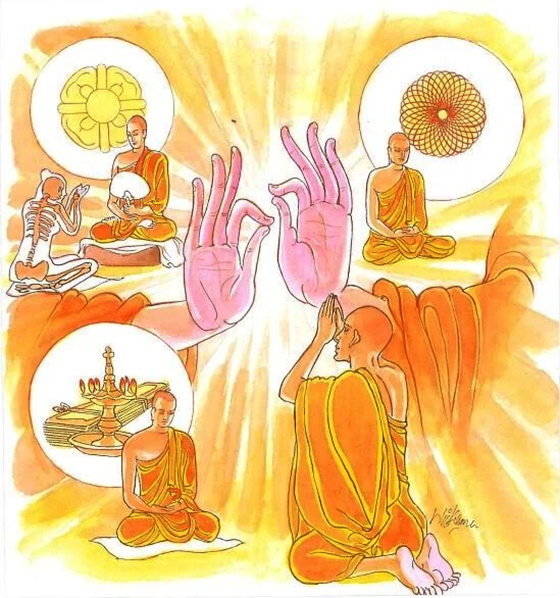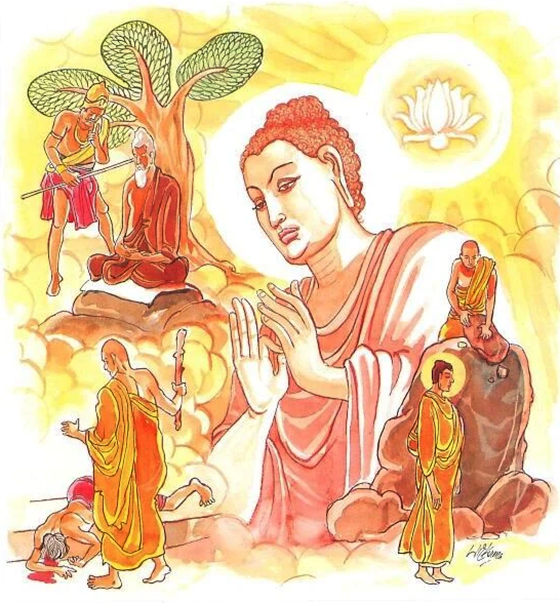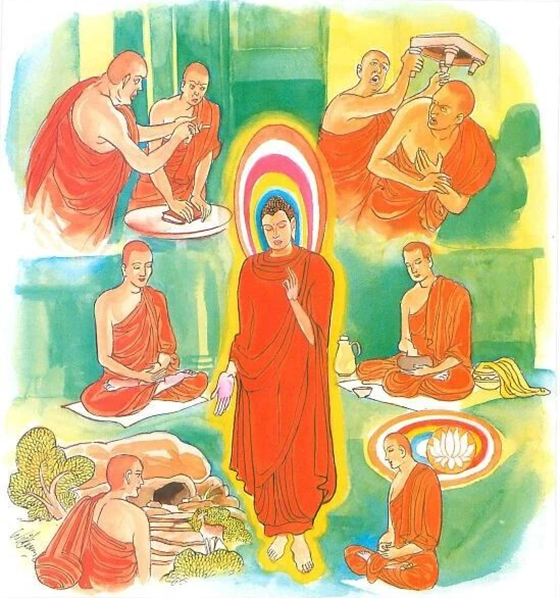Verse 183: Not to do evil, to cultivate merit, to purify one’s mind – this is the Teaching of the Buddhas.
Verse 184: The best moral practice is patience and forbearance; “Nibbana is Supreme”, said the Buddhas. A bhikkhu does not harm others; one who harms others is not a bhikkhu.
Verse 185: Not to revile, not to do any harm, to practise restraint according to the Fundamental Instructions for the bhikkhus, to be moderate in taking food, to dwell in a secluded place, to devote oneself to higher concentration – this is the Teaching of the Buddhas.
The Story of the Question Raised by Thera Ananda
While residing at the Jetavana monastery, the Buddha uttered Verses (183), (184) and (185) of this book, with reference to the question raised by Thera Ananda regarding Fundamental Instructions to bhikkhus by the preceding Buddhas.
On one occasion, Thera Ananda asked the Buddha whether the Fundamental Instructions to bhikkhus given by the preceding Buddhas were the same as those of the Buddha himself. To him the Buddha replied that the instructions given by all the Buddhas are as given in the following verses:
Then the Buddha spoke in verse as follows:
Verse 183: Not to do evil, to cultivate merit, to purify one’s mind – this is the Teaching of the Buddhas.
Verse 184: The best moral practice is patience and forbearance; “Nibbana is Supreme”, said the Buddhas. A bhikkhu does not harm others; one who harms others is not a bhikkhu.
Verse 185: Not to revile, not to do any harm, to practise restraint according to the Fundamental Instructions for the bhikkhus, to be moderate in taking food, to dwell in a secluded place, to devote oneself to higher concentration – this is the Teaching of the Buddhas.
Dhammapada Verses 183, 184 and 185
Anandattherapanha Vatthu
Sabbapapassa akaranam
ku salassa upasampada
sacittapariyodapanam
etam buddhana sasanam.
Khanti paramam tapo titikkha
nibbanam paramam vadanti buddha
na hi pabbajito parupaghati
na samano hoti param vihethayanto.
Anupavado anupaghato
patimokkhe ca samvaro
mattannuta ca bhattasmim
pantanca sayanasanam
adhicitte ca ayogo
etam buddhana sasanam.
Source: Tipitaka










Add a comment